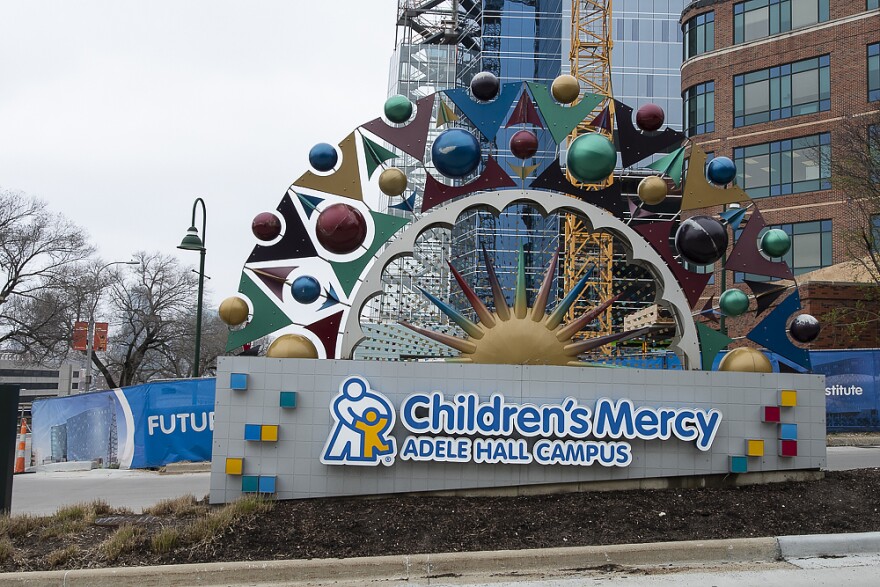With its announcement Thursday that it’s losing $1 million a day during the COVID-19 pandemic, Children’s Mercy Hospital joins at least three other pediatric hospitals around the country that have furloughed employees amid the ongoing national crisis.
The prominent Kansas City hospital said it was furloughing 575 employees and taking other measures to address the financial impact of the pandemic.
In a news release, it also said had eliminated 200 vacant positions, suspended most capital spending and cut executive pay, including a 30% cut for president and CEO Paul Kempinski, who has been on the job for 18 months.
“COVID-19 is having a crushing, negative impact on patient care access, our employees and our financial performance,” Kempinski said in the release. “In order to keep our community safe and to prepare to care for COVID-19 patients, last month we suspended elective procedures and limited outpatient clinic visits.”
Kempinski and other top hospital officials were unavailable for comment. Hospital spokeswoman Lisa Augustine said they planned to meet with employees Friday and would not be granting interviews.
But in its release, the pediatric hospital attributed the financial losses to a more than 70% drop in elective surgeries and outpatient visits, a 67% drop in urgent care visits and a 57% drop in emergency room visits.
Admissions, it said, had fallen by 32%. Meanwhile, Children’s Mercy has seen only four patients admitted for COVID-19.
Children's Mercy's struggles mirror those of other pediatric hospitals in the U.S. Connecticut Children's Medical Center in Hartford has furloughed 400 employees, Wellforce in Burlington, Massachusetts, a health system that includes a children’s hospital, has furloughed 719 workers and Ann & Robert H. Lurie Children's Hospital in Chicago has furloughed about 20 percent of its staff.
In fiscal 2019, Children’s Mercy posted about $1.5 billion in annual revenue, according to its annual report, or about $3.7 million a day. The loss of $1 million per day means that its revenues have fallen by 27%.
Children’s hospitals are not unique in facing financial stresses as a result of the COVID-19 pandemic. The outbreak is impacting all hospitals’ bottom lines as they cancel profitable elective procedures to prevent the spread of the coronavirus and to conserve protective equipment for staff dealing with COVID-19 patients.
But children’s hospitals face their own distinctive problems. For one thing, they don’t get reimbursements from Medicare, which is generally for people 65 years and older. And as Children’s Mercy noted in its release, the federal government’s recent $30 billion stimulus payment to hospitals is based on Medicare billings.
Earlier this month, the Children’s Hospital Association, which represents more than 220 children’s hospital and has an office in Lenexa, Kansas, said the cancellation of elective and deferrable care had resulted in “significant revenue losses” for children’s hospitals. At the same time, it said, operating costs were increasing due to the necessary screening and testing of children, families and staff to protect children who remain hospitalized or were unable to forego care.
“Children’s hospitals cannot sustain financial sacrifices of this magnitude without relief funding,” the association said. “Collectively, our coronavirus-related losses are expected to be $10 billion or more. Direct funding to children’s hospitals during this crisis is vital to our ability to continue caring for children battling injury and illness.”
Kansas City health care consultant John Leifer said that hospitals had responded to the COVID-19 threat “by imposing a plethora of new restrictions on the types of activities that can occur within those hospitals.”
“They’re strongly discouraging anything deemed elective or matters that are not profoundly time-sensitive,” he said.
The U.S. Department of Health and Human Services said this week that it will begin distributing money to children’s hospitals proportional to their share of 2018 net patient revenue. But it’s unclear how much that will help offset the loss of revenue at Children’s Mercy.
During his meeting with employees this afternoon, Kempinski said Children's Mercy will be receiving support through the CARES Act, the $2 trillion legislation enacted in response to the pandemic.
"We will be the recipient of some money that will amount to in the millions – we’re still getting the details on that," he told them. "But whatever that is, we know that it will not cover the loses we have sustained thus far, and it will definitely not cover the loses that we experience every day moving forward. Nonetheless, we’ve been advocating consistently with our federal leaders from both Missouri and Kansas for support."
Children's Mercy had more than 15,000 admissions and 614,000 outpatient visits in its most recent fiscal year. Including its satellite hospital and clinics, it employs more than 8,000 people. More than 2,500 have been working from home since the coronavirus outbreak.
The 575 furloughed employees will be eligible for unemployment insurance and the hospital said it will continue to pay their health insurance premiums.





